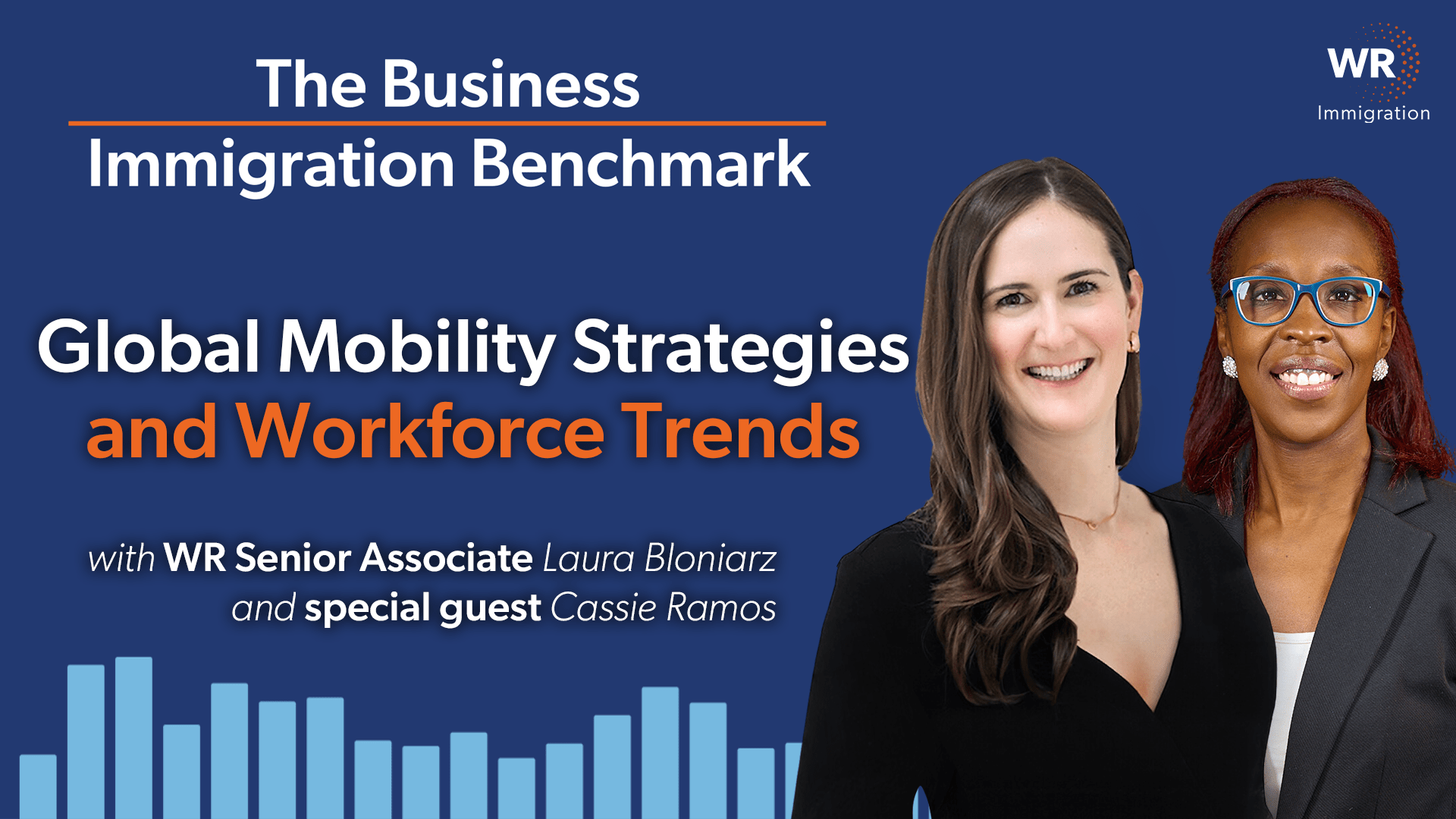Want to stay in the loop? Subscribe here to get the latest updates on the Business Immigration Benchmark podcast and more!
In this week’s episode of The Business Immigration Benchmark, I had the pleasure of speaking with Cassie Ramos, Esq., Lead Global Mobility Partner at Biogen. Cassie brings a unique perspective, having transitioned from immigration law into a corporate mobility role just before the pandemic. She shared valuable insights on effective communication strategies, managing workforce compliance, and the evolving role of global mobility teams in 2025.
For global mobility professionals navigating uncertainty, this episode provides actionable insights into how technology, compliance, and change management are shaping industry priorities.
Key Takeaways:
1. The Role of Effective Communication in Compliance:
Cassie emphasized that clear, empathetic communication is the foundation of a strong compliance program. She highlighted the importance of:
- Using simple, jargon-free language to explain immigration processes.
- Tailoring communication methods to different audiences (email, visuals, newsletters, etc.).
- Providing real-time updates and directing employees to reputable sources to ensure they have the most current information.
2. Managing Foreign National Anxiety & Risk Tolerance:
With immigration policies shifting rapidly, foreign nationals are experiencing heightened uncertainty. Cassie shared strategies for managing employee concerns:
- Framing guidance around individual risk tolerance.
- Offering proactive travel advisories, especially ahead of peak travel seasons.
- Hosting office hours to provide direct access to immigration counsel for real-time questions.
3. Engaging Leadership & Stakeholders in Global Mobility:
Cassie discussed how Biogen ensures leadership is aligned with mobility strategies:
- HR teams cascade policy updates to managers instead of direct outreach to individual leaders.
- Communication includes risk assessments and cost implications to help managers make informed decisions.
- Planning for potential visa delays by encouraging early discussions on long-term immigration strategies.
4. The Future of Global Mobility in 2025:
- We explored trends shaping the industry, including:
- Budget-driven decisions influencing sponsorship policies and hiring strategies.
- A shift back toward in-office work and its impact on relocation policies.
- More structured approaches to managing international talent pipelines.
My Parting Thoughts
Cassie’s insights highlight the importance of staying proactive in workforce planning and communication. As immigration policies evolve, organizations must continuously refine their strategies to support employees while maintaining compliance.
If you have insights or strategies you’d like to share, feel free to DM me on LinkedIn or submit a question here!


